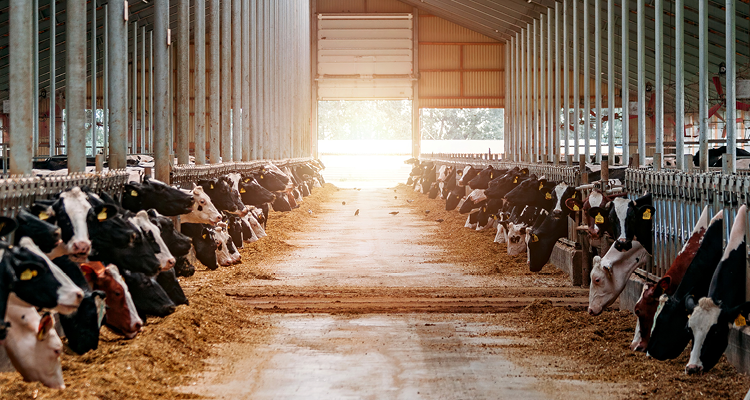
Trace minerals are essential nutrients required for numerous biological functions in the body, including structural (skin and bone), physiologic (hormones), catalytic (cell metabolism), and regulatory (cell division, programmed cell death). While forages and grains contain some trace minerals, additional supplementation for cows is generally required. Mixing trace minerals into the total mixed ration (TMR) helps ensure adequate intakes more than offering free choice minerals. Since many beef operations offer free choice minerals and have variable intakes, injectable trace minerals have been utilized as an insurance policy to make sure that cattle receive the necessary trace minerals at critical times, such as weaning and breeding. While primarily seen as a beef product, injectable trace minerals have an important role on dairies as well.
Often I am asked, “If I have a good mineral pack in the ration, do I still need to give a shot of trace minerals?” My answer is something that every dairyman has done: if we have calcium in the ration, why would we need to give an IV bottle of calcium? Injectable minerals, whether it’s calcium or trace minerals, cannot, should not, and must not replace oral mineral supplementation. These injectable minerals are designed to boost cows at times when demand exceeds possible intake. By supplementing trace minerals via injections, we can bypass rumen antagonism and poor absorption in the small intestines. The injectable minerals allow rapid increases in available trace minerals for the body to utilize.
Peak demand periods
Implementing injectable trace minerals into protocols simply requires identifying times when demand may exceed intakes. This would include in the close-up and fresh period when cows’ dry matter intake is suppressed (nearly a 90% decrease in the week prior to calving), when we may be feeding more antagonists in the form of sulfur as part of a negative DCAD diet, and when the nearly fully developed fetus is attempting to store as many trace minerals as possible in its liver, which removes them from the cow’s blood levels. As a result, a cow’s trace mineral levels will substantially drop at parturition at a time when trace minerals are needed in high amounts to help neutralize the inflammation associated with parturition and the beginning of lactation. Research has also shown that supplementing cows with mastitis or high somatic cells can help to aid the immune system in fighting off these udder infections.
Importance of trace minerals in calves
While calves are born with very high levels of trace minerals, these reserves are rapidly depleted, dropping nearly 75% in the first two months. Supplementation at times of vaccination allows a synchrony within the body, providing the essential trace minerals for calves to respond to the vaccine and offering much higher levels of response and protection.
Just as injectable trace minerals provide beef producers with the insurance that cows have the trace minerals they need, when they need them, injectable trace minerals can be a critical tool for ensuring dairy cows the same benefit.



